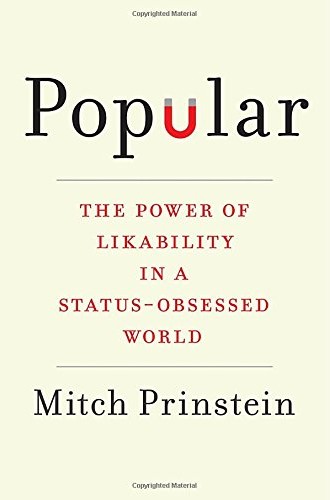Is popularity the goal?
Jesus wants us to be likable—but more importantly, he wants us to love.
I recall having a conversation once with a clergy colleague who said he’d always wished he could be friends with Jesus of Nazareth. I admitted that I found that prospect to be rather horrifying: “I think I would be terrified of Jesus most of the time. He flaunted social norms; he preached about violence, eternal fire, and self-sacrifice; he overturned the tables in the temple. I don’t think I would want to be his friend.” Jesus embodied love, but to use the language of Mitch Prinstein, Jesus wasn’t very likable.
Prinstein is a child psychologist who teaches at the University of North Carolina at Chapel Hill. His new book is incredibly helpful in the distinction it draws between two forms of popularity: status and likability. It’s marketed as a book to help people become more successful and happier in life. “This book helped me understand why I wasn’t cool as a kid, why I’m still not today, and why I shouldn’t care,” says the blurb by bestselling author Adam Grant printed on the front cover. But it’s much more than a self-help book. It presents in an accessible way the latest scientific research on the effects of popularity on people’s behavior and relationships, with a larger aim that has ethical resonances. It reads like an apologia for people to be more likable.
As it turns out, status (which our culture often reveres as a mark of popularity and something to be achieved at all cost) doesn’t make for happier or more successful people. But likeability (which also leads to popularity) does, and it has the added benefit of creating a more cohesive culture. “The efforts required to obtain status—behaviors such as aggressiveness, disregarding the feelings of others, and selfishness—should not be what we esteem for ourselves or for our society.” Instead, we should prioritize likability, which means
choosing to help our peers rather than exclusively satisfying our own needs, showing more interest in others rather than vying for more attention and power, and cultivating relationships more than ‘likes.’ It’s making the choice to help others feel included and welcome rather than making ourselves feel superior . . . [and] doing what we can to promote harmony rather than focusing on how to dominate others.
Prinstein is a researcher and practitioner at heart, and he engagingly explains the science behind his claims about popularity. I found it fascinating to learn about the results of psychological studies that show how our subconscious biases affect our impulses and physiological studies that show how the perception of being rejected is processed by the brain and even alters the structure of our DNA. His summary of a groundbreaking 1982 study on likability that categorized schoolchildren as accepted, rejected, neglected, controversial, or average had me similarly categorizing the people in each house on my street.
As a parent, I was both disturbed and inspired by Prinstein’s analysis of a longitudinal study of 10,000 Swedish children, which shows that likable children grow up to be better adjusted, healthier, and more vocationally successful. “While likable people live in a world in which they are treated well, unlikable people are avoided, ridiculed, or victimized,” Prinstein explains. I’m now paying more attention to how I might deliberately cultivate kindness and helpfulness in my own children.
But there’s an idealism in this book that makes me profoundly uncomfortable. As important as it is for us to teach and practice likability rather than status (Exhibit A: the election of Donald Trump), it’s becoming increasingly clear to me that we live in a world where fighting injustice might require us to do and say things that make us unlikable. In the face of radical evil or violent hate, we might have to flaunt some social norms. We might even have to turn over some tables or call for self-sacrifice. The most moral course of action might be the least likable. I’m also aware that I write these words as a person who is socially situated to move fluidly between likability and unlikability as I choose. But there are plenty of likable (i.e., helpful, kind, unselfish, relational) people who are routinely “avoided, ridiculed, or victimized” simply because of their skin color or faith tradition or sexual identity or income level. For these people, likability isn’t an automatic pathway to success and happiness.
Popular is a compelling primer on the dynamics of likability in human community when that community is working at its best. But I’d argue that currently our community seems to be working at its worst. Perhaps in such circumstances, likability and its companion popularity—no matter how hard-wired we are to seek and cherish them—are red herrings. Perhaps the real goal is something less comfortable and harder to achieve: love in all of its theological complexity.







